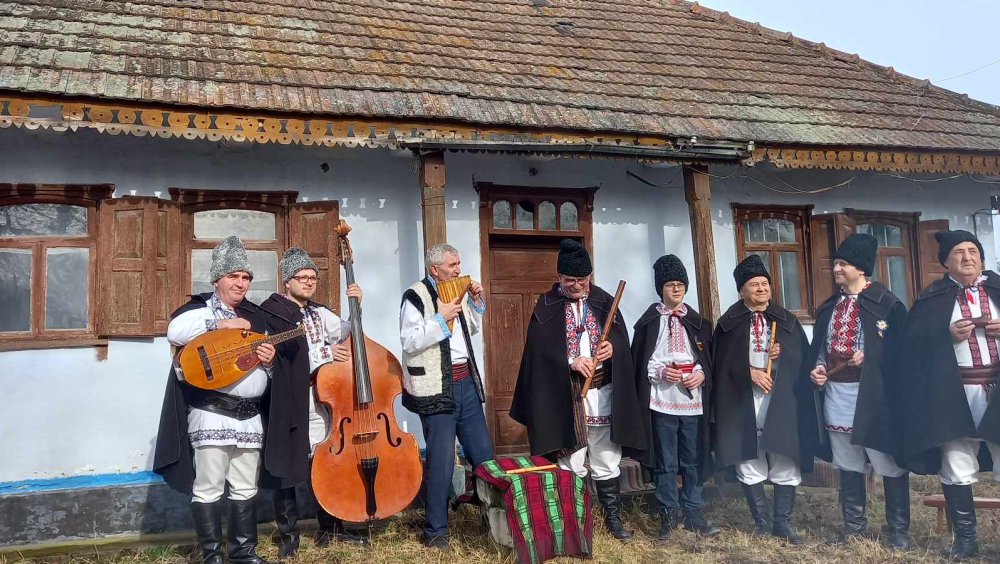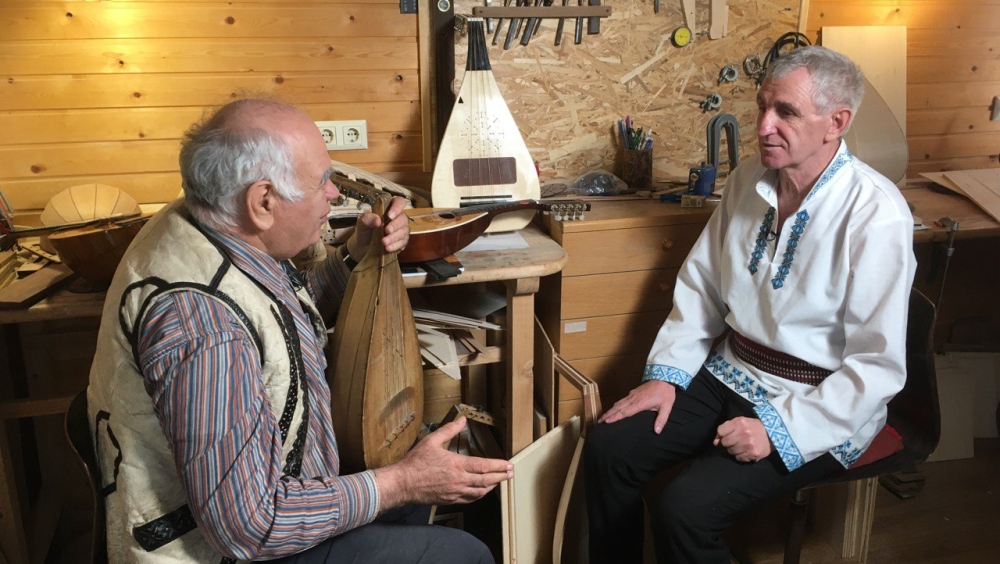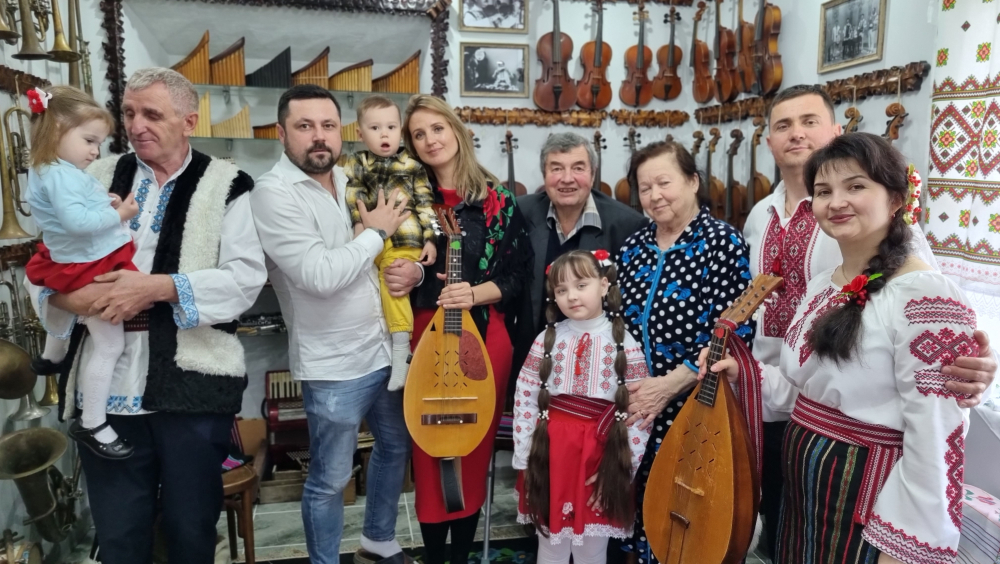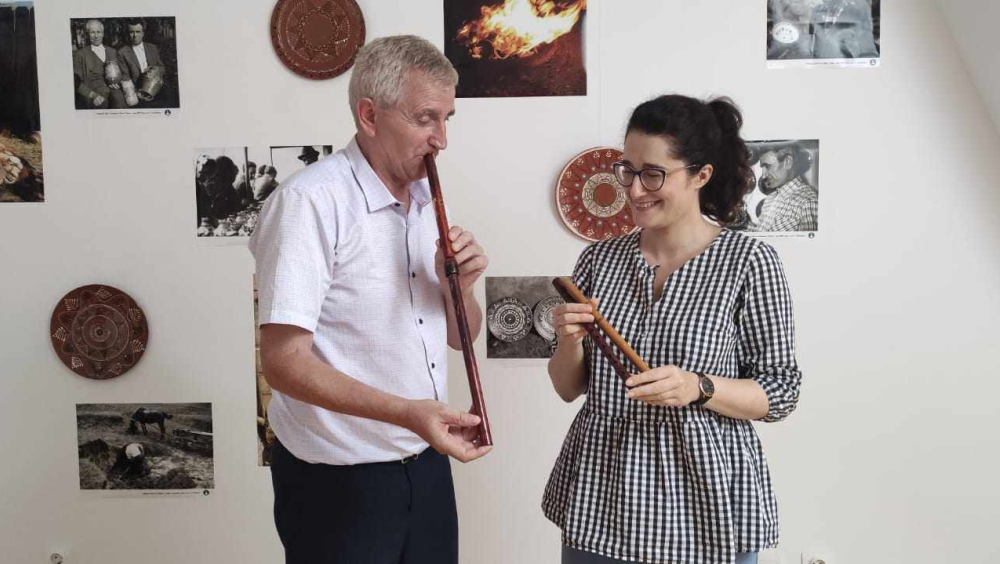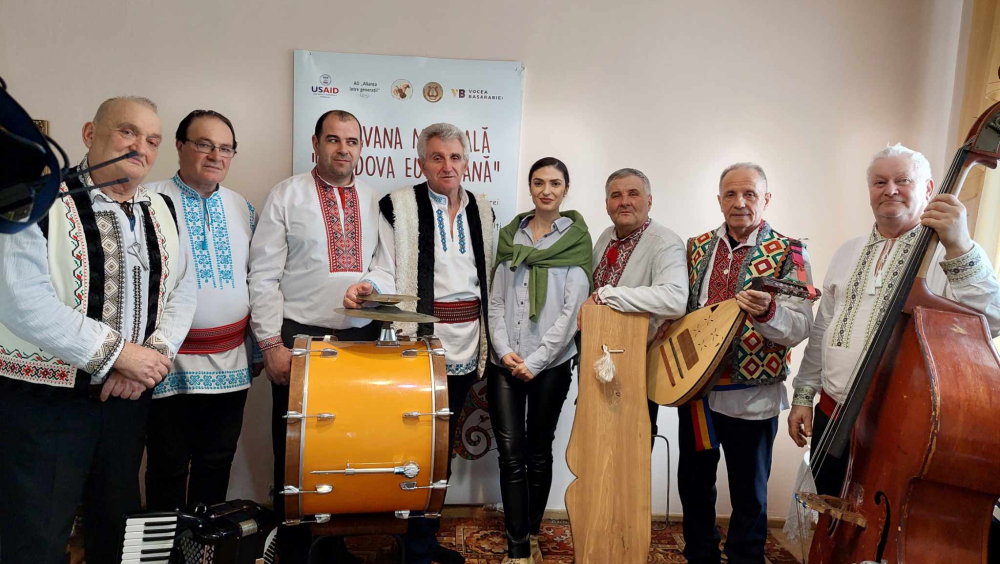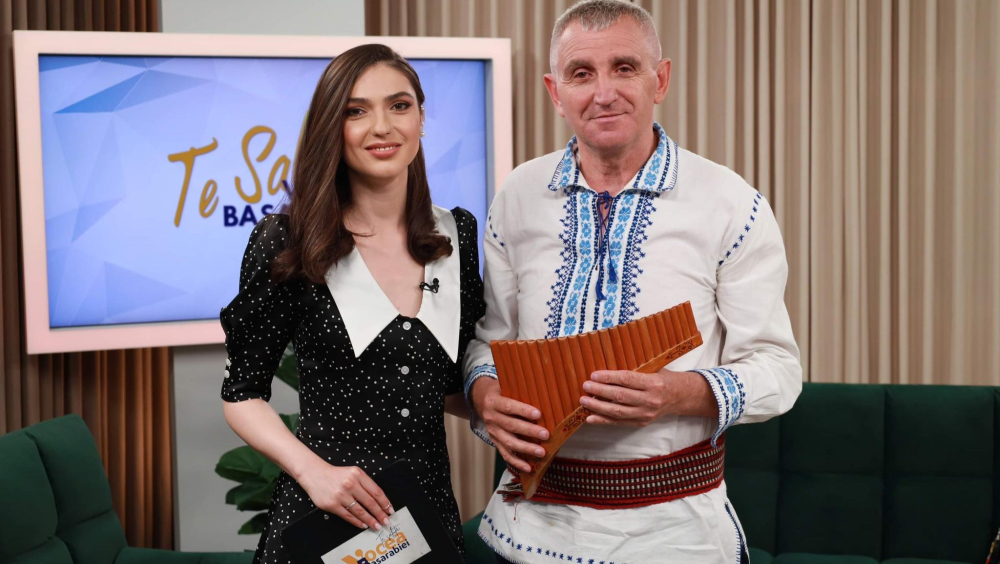The pure seed of traditional music
During the period of collective wandering, some people rise, find themselves, and many times, explore the past. There at the roots is our personality foundation.
I am lucky to have chosen to identify such people, to know them, and, through my job, to talk to others about them. Do you know what I found? These examples are inexhaustible, like a spring.
My colleague, who inspired me to write this story, is both a spring and a seeker of human springs. His most sonorous project is dedicated to old musical instruments. Thanks to him, hundreds of people from Moldova felt heard, seen, and appreciated. These people, some for decades, kept away from the eyes of the world the tradition of singing on the Caval, Ocarina, Bucium, in leaf or fish scales, and other musical instruments that are rare today, a normality in the past.
It's also impressive how he did it - by bicycle over long distances, at an age when some only keep to treat diseases, meaning after 60 years.
Thanks to the insistence, dedication, and simplicity of Gheorghe Șova, this project went to another level - a cross-border, European one. He seems to hypnotize others with his openness and love of folk music, playing old traditional instruments, which create opportunities for discovered talents.
This initiative also encourages parents, implicitly me, to show the children, but also ourselves, what formed us as a personality, as a nation, with what cultural potential we have in the big, civilized world. I am inclined to believe that it is also a way to overcome the psychological traumas, the identity crises, in which we were included against our will, and once solved, we will be able to be whole and efficient in all fields.
I am among the luckiest people, at least in Europe. Why? Because I chose (listening to my inner voice) to look for human treasures. I did, working in radio. Then I stopped. About 5 years ago, I returned to this activity, already for the written military magazine. Only now have I realized that through these stories I was not only promoting talents and special skills but also feeding my mind and soul with positive energy. These people, through their passions and their achievements, inspire me and give me the strength to go through life, and once articles are published, the impact extends to an entire community.
Someone paints in play dough, someone else creates icons with sewing beads, someone writes poems, and someone else builds unusual cars from the parts of other transport units. I collected dozens of curious stories about our citizens, including the military.
At one moment, I discovered that a colleague, located in another corner of the country, was also looking for talents, in the musical field. And not just any, and not anyway. He focused on those who played old folk instruments and reached them by bicycle, regardless of the distance.
I started following his activities. The folklore expeditions included the most hidden localities; they included the area, which for 30 years has been isolated, not by the will of the natives. He tries to reunite, what the Dniester divides, through cultural roots.
Hearing about these feats of Gheorghe Shova, I didn't know what impressed me more: the way how the 60-year-old man is doing it or the fact that the nation's history is being reborn. While I was meditating on these emotions an idea came into my mind – discovering similar talents among the soldiers of the National Army. My research turned into an annual project, "When the military sings, the war is silent". One by one: trumpeters, violinists, accordionists, drummers, guitarists, etc., with or without music school, They came out of anonymity and contributed to the promotion of peace. It was the year 2023.
My readers, Gheorghe, his team, the listeners, and the (tele)spectators were contaminated by the love of popular music, by the pride of keeping these instruments, by the desire to sing and not fight, by the feeling that we are unique, and by the chance to be known in a world where diversity is respected, valued, and promoted. They are our inner needs in the fight against social traumas and frustrations, which we have been forced to live through the years. And once overcome, we become confident and efficient again.
I don't know if this man, born in the rebirth season, realized what mountains he had moved. Today, everything that has formed our cultural identity is public because every instrumentalist, discovered by Shova, has been included in a database. https://folclor.md/ro We can watch and review the interviews and songs performed by local artists whenever we need them, for personal use or as teaching material. For example, my children and I visited some of the untitled masters to listen to and learn from them the music of the Leaf, the movie film, Cobza, Caval, Bucium, etc.
Isn't it great that we already have a source of information and inspiration? Isn't this the way to human spiritual continuity? Just as a sculpture comes to keep us connected with the past, old musical instruments are like portable monuments, always reminding us to preserve the legacy of our ancestors.
However, my delight didn’t end because my colleague's story didn’t end either. The author didn’t "tickle" the discovery emotion and then leave it in suspense. He continued by gathering the talents in musical caravans. Here is an example: https://www.youtube.com/watch?v=slYpaBpoj8k. Thus, the tradition of fiddlers going from village to village and from country to country (because the project was taken to a cross-border level) was also revived.
I was watching the participants and analyzing: on the one hand, the old people, who for years kept their talent away from the world's eyes, now have the chance to share the pleasure of singing. On the other hand, the young, shy, and somewhat ashamed of their atypical passion for their age feel encouragement and confidence. I am only talking about the benefit of dialogue between generations, perceived in recent years as a social burden.
What pleased me even more was the responsiveness of state institutions (we are used to the reluctance and indifference of their representatives). Their involvement gives us hope that our cultural heritage doesn’t remain dusty in the history warehouses.
Why are all these activities important, and why do I admire my colleague's initiative? Culture is the nation's DNA, which contributes to building its own life and the international relationship. This is why the imperialists, after conquering territories, first destroy or erase the cultural potential of the natives and then subtly, and steadily, install new ideological programs. Thus, the cultural DNA is as if it covers itself in a cocoon, and the people hibernate. That is why the courage of those, who removes this destructive covering and create premises for the revival of national identity, is monumental. With a soul and mind reconciled, the nation can step confidently into the wider world.
The changes are produced slowly and without interruptions; that's why I will support the healthy initiatives, implicitly of Gheorghe Shova. That is why I count on the support of the powerful and well-intentioned outside the country.
On the European dimension, I have some strong points of the project.
The defining element is in the title of the project: "European Moldova" Musical Caravan. Every nation has its ancient musical instruments. This can be an example of good practice for other countries and communities. Moreover, the project involves the congregation at public cultural events, and attracts young people in this form of cultural expression and presentation – the musical caravan. Also is elements of education and training, because they are common elements between generations. Plus, identifying, documenting, and mapping musicians is done for people aged 14 to 100 years. The project must include people of both genders, different ethnicities, and regions (including the left of the Dniester).
The main goal of the project is to implement non-formal education methods based on culture, music, and movement to promote the 9 main life skills of young people, which are self-regulation, flexibility, well-being, empathy, communication, collaboration, growth mindset, critical thinking, and learning management. In other words, the project is useful for all opinion-makers and educators.
The project perspective would be to recognize the value and scale of the project, given that the authorities are still not concerned with this aspect. Instead, he had full international support. The project attracted grants from the European Union Program "Confidence Promotion Measures" implemented by UNDP-Moldova, but also by the United States Agency for International Development - USAID-Moldova, and recently Gheorghe Shova was declared Champions of Change-2023 by LID Moldova Foundation.
